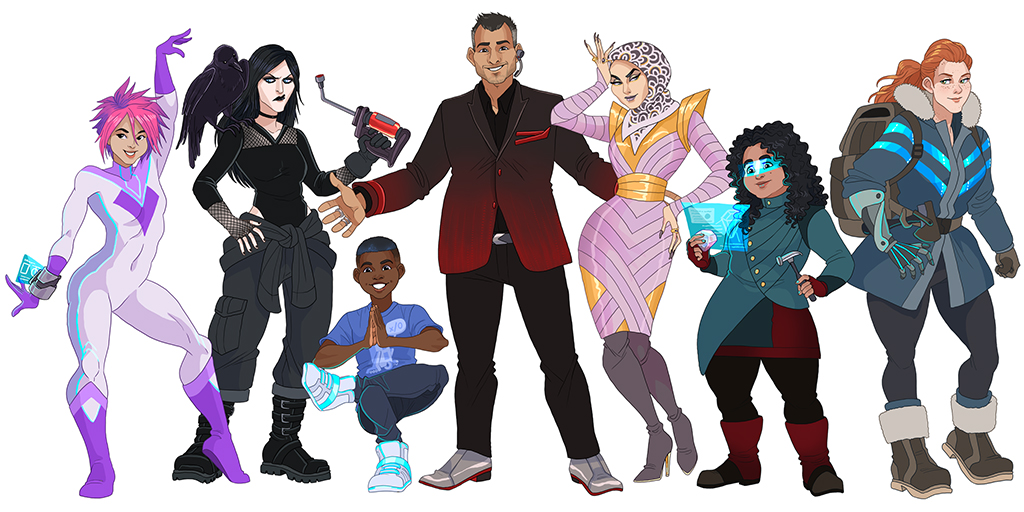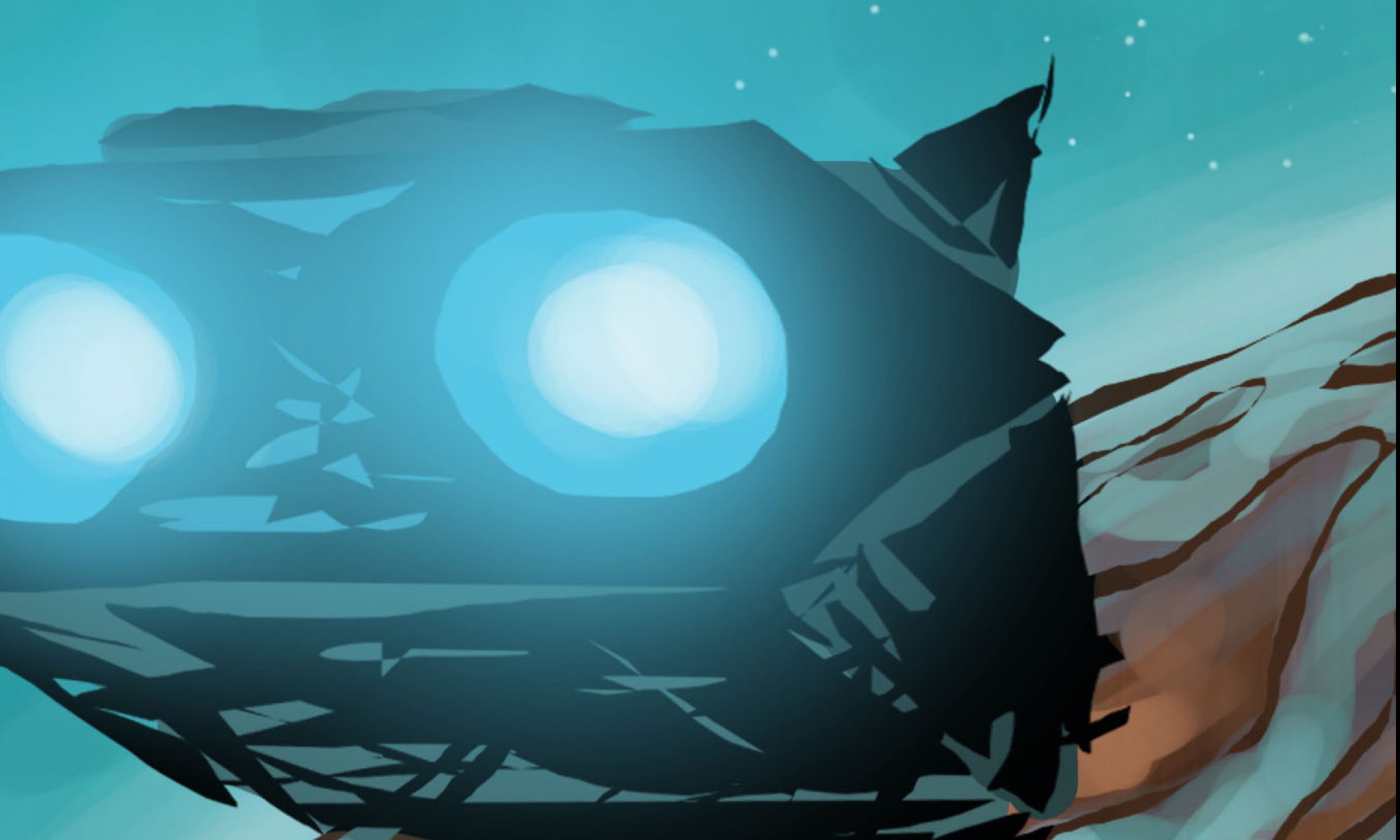New Voices Wanted

Festive Ninja is looking to publish essays on speculative fiction and narrative tabletop gaming as well as adventures to support our space opera tabletop RPG Return to the Stars.
We pay 8 cents a word, on acceptance, via Paypal.
For English first publication rights, exclusive for 6 months after acceptance. We are not interested in work that has been published anywhere before, including self-publishing on the web, via a blog, Tumblr, ect.
Festive Ninja will retain all rights to the work on a non-exclusive basis going forward. This means we may keep it in print and archived on the web, release it in a “best of” anthology, etc.
Additionally for game related material (i.e. not essays, poems, etc) we retain the rights create any sort of new content based on it such as: further adventures including NPCs or places mentioned in an adventure, podcasts or songs-cycles or video games or musical theater based on the work or any element in it.
We are especially interested in:
- New Voices: strong clear writing from people who haven’t been published before
- Diversity: stories written by/about people not traditionally centered in tabletop RPGs
- Strong science fictions hooks: adventures that can only happen because of technological or social progress.
Generally, it will make more sense for you to send a pitch, rather than a submission, but we will accept either. Send pitches/submissions via e-mail to editor@festive.ninja
- Only one pitch/submission at a time, please
- Google Docs, Word Doc or RTF format
- Include story title, your name and your e-mail address in both the submission e-mail and document file.
- Be certain that gaming material aligns with background of the game. (see below)
- Note what you are submitting. We are currently accepting:
- Adventures for Return to the Stars (see guidelines below.)
- Article or Essay on topics related to speculative fiction or narrative RPGs in general (see guidelines below.)
- Our goal is to respond with acceptance or rejection within four weeks, ideally much sooner
Return to the Stars Adventures
Return to the Stars is powered by the Fate, so you will want to be familiar with Fate or with Return to the Stars itself. (quickstart available for free). At a minimum, read the settings and themes section below.
A scenario should be roughly 1000-3000 words in length. Typically, it will involve the players travelling to a previously undiscovered world, encountering a scientific anomaly and/or society that has been cut off from galactic civilization for over a century.
There should be a problem or mystery that engages the characters. You can assume that that player characters have aspects that encourage them to explore. Player characters come from a post scarcity economy so money, trade or loot should never be assumed to motivate them. Curiosity and wanting to help others are hooks that can entice players to engage with the scenario.
Because Return to The Stars is a game that encourages and expects improvisation on the part of players, you should focus on setting up an interesting situation and outlining the personality, plans and motivations of non-players characters. You can and should give the game master some advice on how to resolve easily anticipated actions that characters may take in response to situation they find themselves in.
Do not create stat blocks for NPCs. Instead, describe the them using a few aspects, and a stunt or two if needed.
The scene Choices and Consequences (page 73 in the free quickstart) is a good rough approximation of the shape and structure of a scenario, although it includes more detailed stat blocks than you would normally include, because it was written for pre-generated characters.
Articles/Essays on Speculative Fiction or narrative gaming.
We are interested in concise well written articles that:
- Would be of interest to a speculative fiction audience; something that you can imagine being an interesting panel at a SFF con. For example, the essay we published by Alexandra Rowland on hopepunk.
- Explain techniques of writing speculative fiction that are also applicable to narrative gamers, for example: world building, characterization, creating strong opening scenes.
- Add interesting game mechanics or systems to Return to the Stars or Fate. While players like having novel systems to interact with, good systems do not distract from the centrality of player aspects from the game, do not require significant book keeping, and accomplish something novel that can not more easily be accomplished by the core rules.
- Give guidance to help game masters or players succeed in creating cool stories together.
- Explore indie RPG aesthetics. Think film theory rather than movie reviews. Typically orientated to responding to games, not “theory” that starts from questionable first principles to make expansive claims about what all “well designed” RPGs must look like. Think Feminist Frequency, not The Forge.
Articles should typically be 1500 to 2500 words in length.
Return to the Stars Background
Return to the Stars is an optimistic tabletop role playing game. A free quickstart version is available, but here is a quick summary of the setting and themes of the game:
Return to the Stars is set in the early 27th century, 600 years from now. During that time humanity spread through the Galaxy thanks to origami drives that fold hyperspace. 125 years ago, Stellar Beacon that illuminated hyperspace suddenly went silent, rendering galactic travel impossible. Last year, partial illumination of approximately 5% of the known space allowed for galactic travel in a limited region.
Some things that exist in the setting: terraforming, personal genetic engineering as a hobby, age and youth extension, the metric system (no inches, feet, or miles please).
Things that don’t exist in the setting: intelligent alien life, Artificial Intelligence exists on isolated planets, but travel in hyperspace is impossible for digital computers, telepathy or other psychic powers, time travel, teleportation. Communication is limited to the speed of space travel. (Players need to act on their own initiative, they can’t phone home for instructions)
In the setting, most planets are either newly rediscovered or still isolated. A few small interstellar communities using primitive low range 22nd century starship technology, rather than origami drives. Two entities operate on a larger scale: the Convention Authority and the Dank Lords of Gulch
Themes
Optimism: showing that humanity can be better in the future. Enlightenment values, reason, cosmopolitanism, hybridity and diversity, humanism.
Space Opera: space battles, pulpy melodramatic adventures, romance, and risk-taking
Contemporary Challenges: newly rediscovered planets may have fallen into a less advanced state during the Great Silence when galactic travel was impossible (or even earlier, do to self-imposed isolation.) This gives us a chance to examine 21st century problems, just as in the 60’s Star Trek told stories that were metaphors for the Cold War or the struggle for Civil Rights. And if sometimes Nazi-like villains can be punched in pulpy action sequences, in other occasions people come to live in a more prosocial way through education and communication.
Avoid: exotification of existing cultures, stories about the dangers of technology, cynical assumptions that institutions can never be expected to function to make people’s lives better.
Inspirations: Hopepunk, Solarpunk, afrofuturism, Brin’s “Star Wars” despots vs. “Star Trek” populists, Holmes: What We Can Know and What We Can Change: The Optimism of Arrival, Appaih’s Cosmopolitanism, Nussbaum’s The Fragility of Goodness

